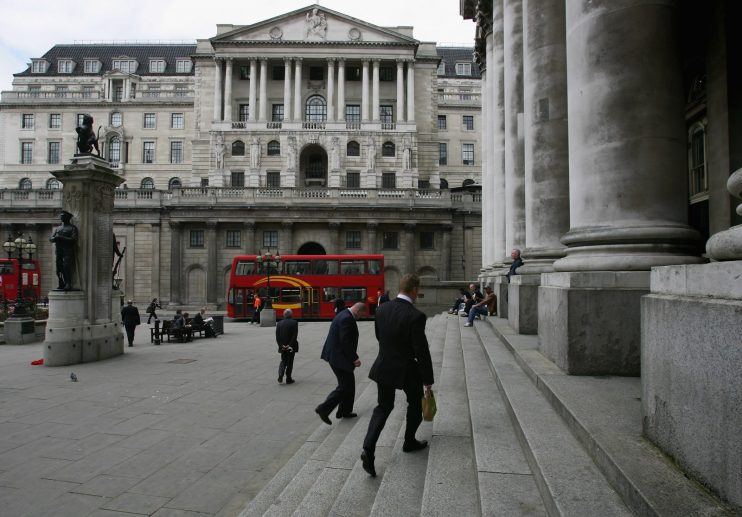Bank of England hikes rates four times in a row for first time since independence

The Bank of England today hiked interest rates for the fourth meeting in a row for the first time since it was given control of monetary policy 25 years ago.
The move was driven by rate setters focusing on taming the worst inflation crunch in the UK for three decades despite them expecting growth to slow this year and next.
Threadneedle Street sent borrowing costs 25 basis points higher to one per cent, levels not seen since the economy was in the teeth of a recession caused by the fallout of the financial crisis.
Inflation in the UK is already running at seven per cent, the highest rate since 1992, but the Bank expects it trend much higher in the coming months, peaking at just over 10 per cent in the final months of this year, it announced today.
That would be the quickest acceleration in prices since 1982.
“The significant majority of that further increase reflects: higher household energy prices following the large rise in the Ofgem price cap in April and projected further large increase in October when the cap is next reset,” the Bank said.
The economy is forecast to effectively dip into recession next year, caused by households cutting spending in response to incomes failing to keep pace with price rises.
Higher food prices generated by the war in Ukraine will also intensify inflationary pressures in the UK.
The Bank’s move underscores the sharp policy shift the world’s central banks are expecting to embark on this year to get inflation back to their two per cent targets.
Yesterday, the world’s most important central bank, the US Federal Reserve, sent the financial system’s core interest rate 50 basis points higher, the steepest rise since 2000.
The move was in response to stateside inflation hitting 8.5 per cent, the hottest rate since the 1980s.
Some members of the Bank’s Monetary Policy Committee (MPC) agreed with their American counterparts, with three voting for a 50 basis point rise.
The European Central Bank is expected to rein in accommodative policy more slowly this year.
The MPC voted by a majority of 6-3 – including governor Andrew Bailey – for a 25 basis point rise.
Jonathan Haskel, Catherine Mann and Michael Saunders favoured a 50 basis point increase.
The Bank has also started drawing up plans to begin selling bonds from its balance sheet now that rates have reached one per cent.
The Bank owns around £840bn of government and corporate bonds.